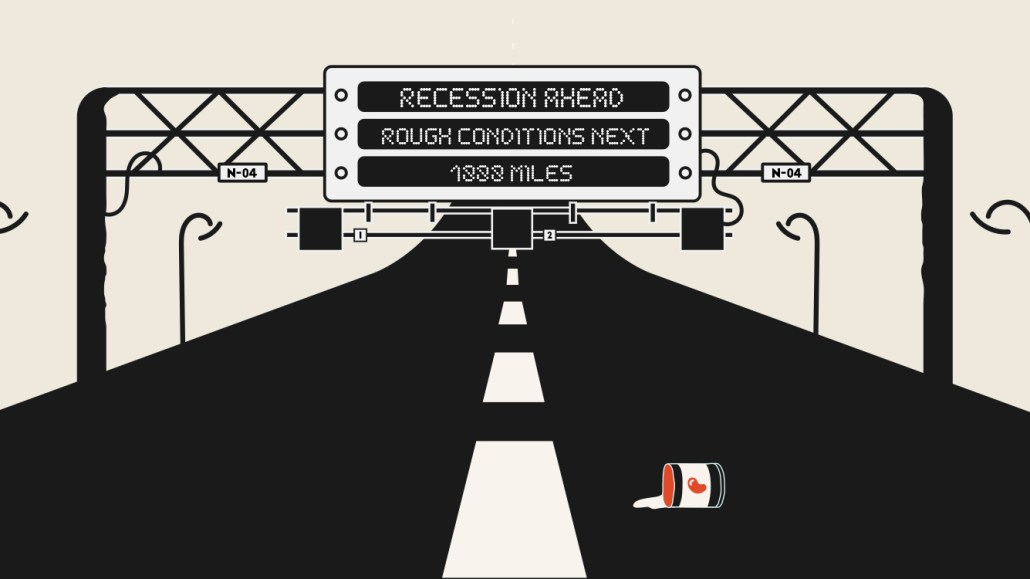Save 50% on a 3-month Digiday+ membership. Ends Dec 5.
‘This is not a time when you want to sell’: Mastercard CMO Raja Rajamannar on retooling advertising during a crisis

Like most advertisers, Mastercard has reduced how much it is spending — it would not say by how much — but Mastercard chief marketing and communications officer Raja Rajamannar sees this as a temporary move that’s more attuned to the current sentiment than a way to cut costs.
“The first thing we did was we started looking at [our advertising] from a philosophical perspective,” he said. “There are times when you want to sell. This is not a time when you want to sell. This is the time to serve. Consumers don’t want you to keep sending ads to them in a tone deaf fashion. They’re going through a crisis with a lot of fears and apprehensions. You should not show up with your ads trying to sell your wares. If you’re trying to solve some problem or pain point for people, do it. If you’re not trying to solve some pain point, then do something for the community. “
Rajamannar spoke to Digiday about how Mastercard is putting actions over words, and when it will get back to spending more money on advertising. The answers have been condensed and lightly edited for clarity.
What role do you see advertising playing now?
We have a series of products that can help people at this time so we’ve started pivoting our communications and marketing campaigns toward those. For example, in some countries people do not trust shopping online [as much as they do in the U.S.] so we’re running campaigns to inform people how they can safely shop online to help with a pain point. [To help the community,] we’ve said we will do something for the healthcare workers. As one example, we started running campaigns in Europe with UberEats where we’ve contributed 140,000 meals to healthcare workers. We’re trying to do things like that.
Much of the marketing for Mastercard has been around experiences. How have you adapted?
Our core has been around “Priceless” and bringing “Priceless” to life [with] once in a lifetime experiences. Most of these experiences were in person. We’ve had to move to digital and reimagine what they would look like at home. So now you can have a cooking lesson at home from a celebrity chef or have a video chat with a celebrity athlete. We’ve had to quickly pivot and become relevant in this way.
Ad position: web_incontent_pos1
Are you spending less on ads?
We’re going to be managing our expenses tightly as a company and that includes marketing and advertising. We won’t share publicly how much we have reduced [our advertising] but yes, we have tightened our belts. At the same time, we’re making sure we don’t go dark. Globally, there’s a change in the messaging, strategy and tactics. All those changes require money. So we do have our marketing budget but in terms of advertising, yes, we have pulled back on advertising to some extent.
Where have you pulled back?
The bulk of the change happened with sponsorship. Without [live events or sports] happening, that sponsorship opportunity has been canceled and that money is there. In 2013, we pivoted Mastercard to mostly [use] experiential marketing approach we moved a lot [of our budget] from traditional advertising into experiential marketing in a big way. As part of that shift, we went into sponsorships pretty significantly. So when some of these events get canceled obviously that money doesn’t get spent so we do have those. However, there are some events still going on like esports. Last weekend, we had the League of Legends live broadcast [and we still sponsored that].
Where does that money go?
Ad position: web_incontent_pos2
We look at opportunities to constantly be visible in a more appropriate and relevant way that can be sensitive to the current situation. So we’ve been doing a boatload of “Priceless” causes. We do that as well as digital experiences and supporting small business communities with promotions to go shop those businesses.
When do you think advertising spending will return or go back up?
As the economy starts to open up, you cannot be a silent brand. We need to see what’s going on in each region and based on the moment the market starts to open up, Marketers will quickly start to spend their marketing dollars again. So marketing spending will probably start coming back in the third quarter but how fast or how much will come back depends a lot on to what extent we’ve been able to contain coronavirus and the recession.
Have you put coronavirus or bad news about the economy on a block list?
We have not blocked anything of that sort [but context matters]. If we are doing something for the health care workers’ benefit, like our UberEats program, we’re not advertising to sell something, just inform. If you as a reader are looking at something coronavirus-related and along with that news you see the ad from Mastercard about what we’re doing for healthcare workers with UberEats in Europe, that’s not necessarily a conflict in what they are seeing. Obviously, what’s happening with coronavirus is not good but it should not be put in the same bucket as [mentions of] terrorism or pornography.
More in Marketing

Ulta, Best Buy and Adidas dominate AI holiday shopping mentions
The brands that are seeing the biggest boost from this shift in consumer behavior are some of the biggest retailers.

U.K. retailer Boots leads brand efforts to invest in ad creative’s data layer
For media dollars to make an impact, brands need ad creative that actually hits. More CMOs are investing in pre- and post-flight measurement.
Ad position: web_bfu